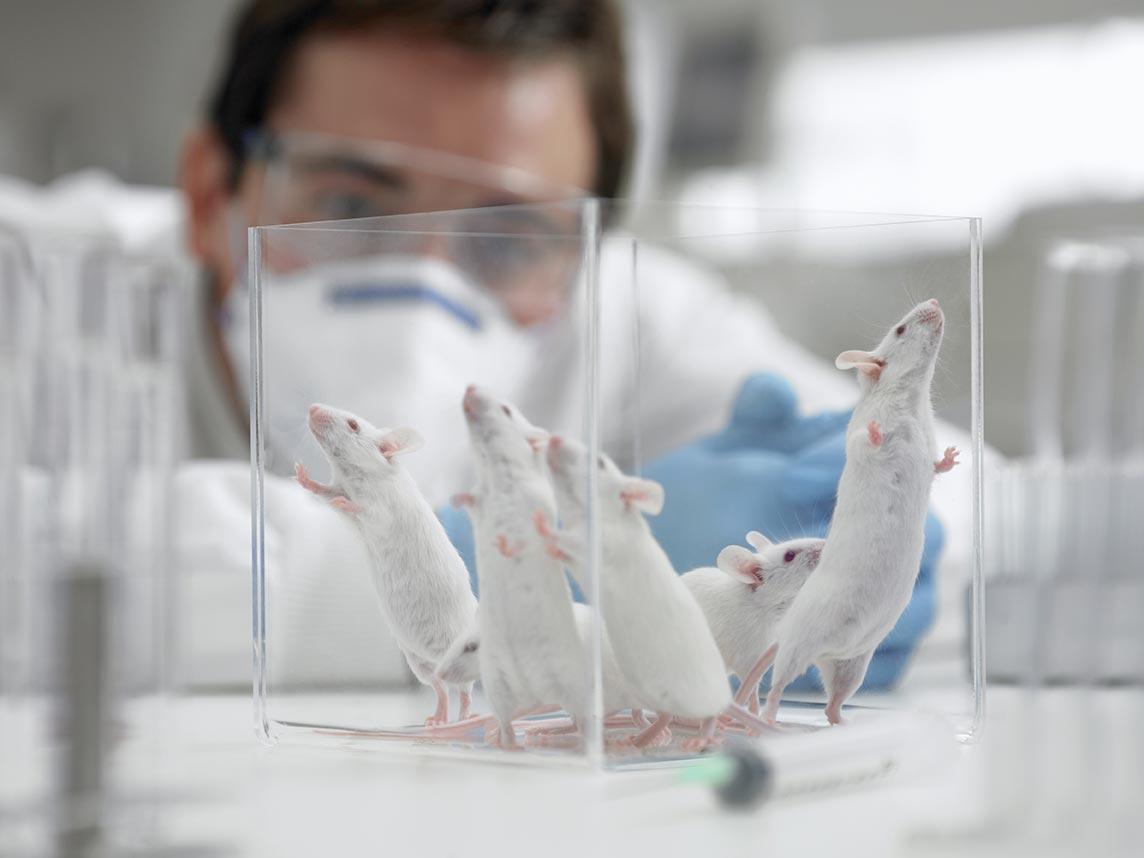Males produce invisible essence that gets females ready for reproduction, but also makes them age faster
Pheromones trigger the earlier onset of puberty but make mature females' bodies age more quickly

Your support helps us to tell the story
From reproductive rights to climate change to Big Tech, The Independent is on the ground when the story is developing. Whether it's investigating the financials of Elon Musk's pro-Trump PAC or producing our latest documentary, 'The A Word', which shines a light on the American women fighting for reproductive rights, we know how important it is to parse out the facts from the messaging.
At such a critical moment in US history, we need reporters on the ground. Your donation allows us to keep sending journalists to speak to both sides of the story.
The Independent is trusted by Americans across the entire political spectrum. And unlike many other quality news outlets, we choose not to lock Americans out of our reporting and analysis with paywalls. We believe quality journalism should be available to everyone, paid for by those who can afford it.
Your support makes all the difference.Male animals emit an invisible chemical ‘essence’ that gets females ready to reproduce, but also makes them prematurely old, according to new research.
The effect has been found in mice and now roundworms, prompting the researchers to say it may be a universal feature of the animal world, including humans.
Males do not actually need to be present when this happens, the lingering smell left by tiny amounts of two male pheromones is enough.
Dr Ilya Ruvinsky, of Northwestern University in the US, said: “The male signals trigger the female to ‘go for it’ – to put more effort into reproduction – but then the body suffers.
“There is a fine balance between reproduction and body maintenance, and this balance can be tipped by the male.
“One [pheromone] signal causes an earlier onset of puberty in juvenile females. The other slows down ageing of the reproductive system in mature females, keeping them fertile longer. However, it also speeds up ageing of the body.”
While their work was in a tiny transparent round worm often used by scientists, C. elegans, they made potentially controversial claims that the effect was widespread in the animal world.
“Our results regarding puberty onset echo previous findings in mice,” Dr Ruvinsky said.
“In mammals, males also produce signals that manipulate the timing of sexual maturation of females.
“This raises an intriguing possibility that a basic mechanism controlling the rate of sexual development is similar in all animals.
“Because of this universality, our findings may have implications for humans.”
The researchers said their work, described in a paper in the journal Current Biology, could potentially lead to drugs to delay puberty, prolong fertility in humans and even combat ageing.
They said the use of the pheromones did not seem to be motivated by malevolence towards females.
“The harmful effects appear to be collateral damage, rather than the goal,” Dr Ruvinsky said.
Other research has found links between reproduction and ageing.
One recent study suggested women who enter the menopause earlier begin to age more quickly.
Join our commenting forum
Join thought-provoking conversations, follow other Independent readers and see their replies
Comments